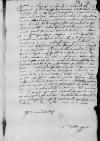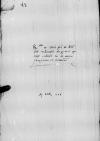List #1939
Ioannes DANTISCUS do Tiedemann GIESEHeilsberg (Lidzbark Warmiński), 1538-10-10
Regest polski:
Dantyszek bierze na siebie załatwienie spraw z bankierem [Georg Hegel] i przywrócenie go do opamiętania. Właśnie wyprawia na dwór królewski posłańca. Natychmiast po jego powrocie wyśle Giesemu jego należności.
Krawiec przekaże Giesemu konstytucje sejmu toruńskiego i kapę, przez pomyłkę dostarczoną do Lidzbarka.
Dantyszek chętnie uczyniłby zadość życzeniu Giesego w sprawie kanonii dobromiejskiej, już wcześniej jednak powierzył ją swojemu kapelanowi.
Odsyła wiersz [Paula Speratusa], którego poziom ocenia bardzo nisko.
Nominacja na miecznikostwo [dla Feliksa von Allen (von Malden, Mełdzyńskiego)] nie dotarła do Dantyszka. Sugeruje on, aby zwrócić się w tej sprawie do pisarzy kancelarii królewskiej. Obiecuje wspomnieć o niej dziekanowi krakowskiemu [Samuelowi Maciejowskiemu], przy tej okazji przekazując mu i [Mikołajowi] Nipszycowi pozdrowienia od Giesego.
Dantyszek zapewnia Giesego, że nie jest tak łatwowierny, jak niektórzy sugerują.
| odebrano 1538-10-11 Rękopiśmienne podstawy źródłowe:
Publikacje:
| ||||||
Tekst + aparat krytyczny + komentarz Zwykły tekst Tekst + komentarz Tekst + aparat krytyczny
Reverendissimo in Christo Patri et Domino, domino
Reverendissime in Christo Pater et Domine, frater et amice carissime et honoran(de) or honoran(dissime)⌈honoran(de)honoran(de) or honoran(dissime)⌉.
Salutem et perpetui amoris commendationem.
Cum
Acta
Canonicatum Gutstatensem
Poema illud, quod suum sapit poetam, utpote neque pedibus, neque sensu constans, remitto. Concitavit mihi risum et non parvam admirationem, quod talia sit miser furore, sed non divino, afflatus
Litterae ms. Literas(!)
⌈LitteraeLitterae ms. Literas(!)
⌉ gladiferatus[2] ad me non pervenerunt. Petendae sunt pretio ex canc<e>llaria a scribis, commonebo tamen dominum
Plura addere multa ad curiam scriptio non sinit, hoc tamen velim sibi de me Dominatio Vestra Reverendissima persuadeat, quod adeo non sum facilis ad credendum in amicum cognitum, quemadmodum illi putant, qui cum aliquid commiserunt, nolunt, ut commissum esse credatur. Sententiam tenet Dominatio Vestra Reverendissima.
Quae diutissime felicissimeque valeat.
Ex
Reverendissimae Dominationi Vestrae deditissimus


 BCz, 245, p. 82
BCz, 245, p. 82